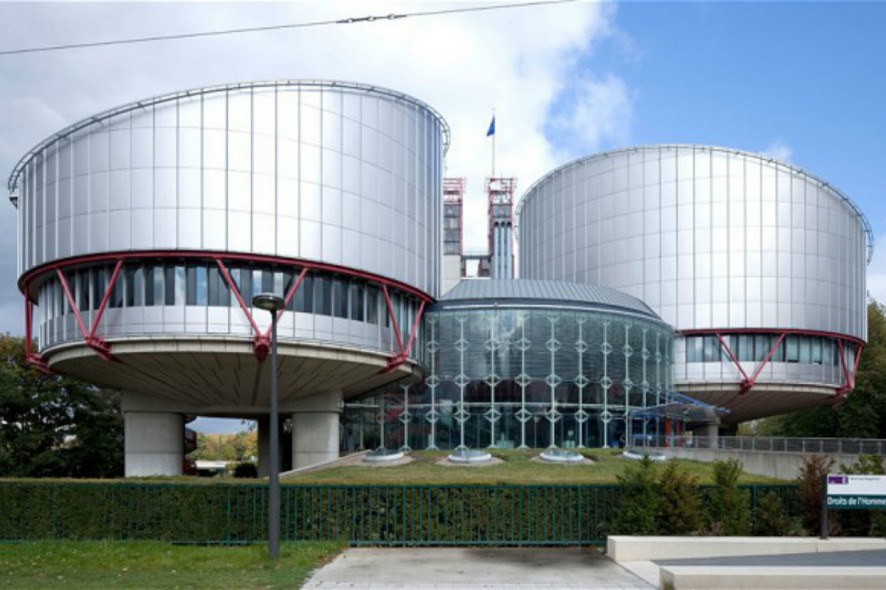European Court of Human Rights (The Grand Chamber): The Bench comprising of K. Lenaerts (President), R. Silva de Lapuerta (Vice President), J.-C. Bonichot, A. Arabadjiev, M. Vilaras (Rapporteur), E. Regan, T. Von Danwitz and C. Toader (Presidents of Chamber), A. Rosas, E. Juhasz, M. Ilesic, M. Safjan, C.G. Fernlund, C. Vajda and S. Rodin, JJ., gave is ruling in a case concerning the copyright infringement in the taste of a ‘spreadable dip’ by ‘Levola’ against ‘Smilde’ manufacturers.
The product in the present case is with the name of ‘Heksenkaas’ a spreadable dip whose intellectual property rights were transferred by its creator to ‘Levola’. The other product involved against whom the dispute is raised is with the name ‘Witte Wievenkaas’ manufactured by ‘Smilde’.
Who raised the dispute?
Levola alleged that the production and sale of ‘Witte Wievankas’ infringed its copyright in the ‘taste’ of ‘Heksenkaas’ and brought the proceedings against Smilde before the Rechtbank Gelderland (Gelderland District Court, Netherlands).
Levola’s Prayer:
Levola asked Gelderland District Court, Netherlands to rule that:
- Taste of Heksenkaas is its manufacturer’s own intellectual creation and is therefore eligible for copyright protections as a work, within Article 1 of the Copyright Law.
- Taste of the product manufactured by Smilde is a reproduction of that work; also a ‘cease and desist’ order against Smilde is also asked for.
Gelderland District Court, Netherlands held that it was not necessary to rule on whether the taste of Heksenkaas was protectable under copyright law. Since Levola’s claims had not indicated which elements or combination of elements, of the taste of Heksenkaas gave it its unique, original character and personal stamp.
Levola appealed against the above judgment before the referring court. The Gerechtshof Arnhem-Leeuwarden (Regional Court of Appeal, Arnhem-Leeuwarden, Netherlands) decided to stay the proceedings and to refer questions to the Court of Justice for a preliminary ruling.
Smilde claimed that the present request for a preliminary ruling is inadmissible because the action in the main proceedings should, in any event, be dismissed, while arguing that Levola has not identified the elements of Heksenkaas which allegedly make it its author’s own intellectual creation.
Thus in light of the information provided by referring court, it cannot be held that the questions raised bear no relation to the actual facts of the main action or its purpose or concern a hypothetical problem, accordingly, the questions referred are admissible.
In essence to the first question, it has been asked by the referring court whether:
Directive 2001/29 must be interpreted as precluding (i) taste of a food product from being protected by copyright under that directive; (ii) national legislation from being interpreted in such a way that it grants copyright protection to such a taste.
The above question is followed with the view that the taste of a food product can be protected by copyright under Directive 2001/29 only if such a taste can be classified as a “work” within the meaning of the Directive. Further in that regard satisfaction of 2 conditions is required; the first one concerning ‘subject-matter’ to be original that is the one to be author’s own intellectual creation, Second condition something which is the expression of the author’s own intellectual creation may be classified as a ‘work’ within the meaning of Directive 2001/29.
The point which requires extreme attention is that, for there to be a ‘work’ as mentioned in Directive 2001/29, subject matter protected by copyright must be expressed in a manner which makes it identifiable with sufficient precision and objectivity, even though that expression is not necessarily in permanent form.
Reasoning for the subject matter to be protected by copyright, expressed with three primary elements of identification, sufficient precision and objectivity:
Authorities responsible for ensuring that the exclusive rights inherent in copyright are protected must be able to identify, clearly and precisely, the subject matter protected and secondly, need to ensure that there is no element of subjectivity.
In regard to the above discussion the conclusion to the first question was that, on the basis of all of the foregoing considerations, the taste of a food product cannot be classified as a ‘work’ within the meaning of Directive 2001/29. In light of the answer to the first question, there is no need to reply to the second question.
The Court (Grand Chamber) held that: Directive 2001/29/EC of the European Parliament and of the council of 22-05-2001 on the harmonisation of certain aspects of copyright and related rights in the information society must be interpreted as precluding (i) taste of a food product from being protected by copyright under that directive and (ii) national legislation from being interpreted in such a way that it grants copyright protection to such a taste. [Levola Hengelo BV v. Smilde Foods BV, C-310/17, decided on 13-11-2018]






